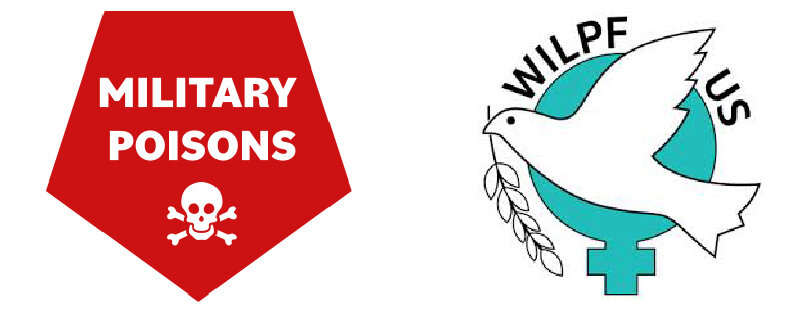Idaho mom fights rare disease with scleroderma while helping to protect others
By Pat Elder
September 12, 2022
Dee Burlile has been really sick, almost to the point of death. She suffers from Scleroderma, a terminal illness for which there is no cure. The word scleroderma literally means hardening of the skin. Dee’s illness affects her skin and internal organs, but she is tough, determined to live and fight.
Dee suffered for years without knowing what was wrong until she was finally diagnosed at the Mayo Clinic in 2016. Her journey with scleroderma has been long and stressful. She has had to travel to medical facilities outside the state of Idaho for specialized medical care.
Scleroderma is caused by preventable environmental contamination. The disease is
included on a list of toxins of VA-eligible diseases caused by chemicals in Camp Lejeune’s drinking water.
Until she became sick 12 years ago, Dee had lived a healthy, active lifestyle. She is a well-educated mother of three children and the wife of a military Veteran.
Scleroderma may be caused by a number of environmental pollutants, although the most compelling argument for the cause of scleroderma in Dee’s case is drinking poisoned water provided by the local water supplier. Dee’s drinking water has had multiple violations for various contaminants prior to her diagnosis, she explains. Dee says there were many people in her neighborhood who suffered from health issues like diabetes, cancer, strokes, thyroid issues, ADHD and scleroderma. The water was so bad Dee’s family ended up moving. It was a beautiful, neighborhood they loved, but it was supplied with contaminated water.
Dee had been very ill leading up to the fall of 2011. On the day before Thanksgiving 2011, she was home with her children getting ready for the holiday weekend. After getting out of the shower that morning Dee collapsed on the floor. My husband was at work so my three young children (ages 8, 6, and 4) were left to help. I was unresponsive so my oldest son, who was still barefoot and, in his pajamas, ran door-to-door throughout the neighborhood looking for help, while my daughter called 911. When paramedics arrived, I learned that I was near cardiac arrest and had my kids not jumped into action I would have died.
Dee spent the next several days in the hospital where physicians ran tests and tried to keep nutrients in her body. Upon release she was placed on a Picc line, a central catheter with access to the large central veins near her heart. It kept her alive.
Some of the medical conditions and procedures Dee underwent include dilation of her esophagus so she could properly swallow, endometriosis, lung disease, heart arrhythmia, colon removal, anemia - with emergency surgery with blood transfusions, brittle bones, thyroid disease, ribs removed, blood clots with collapsed lungs, Raynaud’s disease, and a complete hysterectomy.
Dee drank contaminated water.
She’s had some time to think about it. Dee says we must invest in alternatives to toxic industries and we’ve got to provide care for those who have been impacted by environmental hazards.
Dee’s suffering and wisdom
Dee’s words are deeply disturbing because they cause us to think that the way we live is destructive to our lives. “Companies make billions of dollars from products we use that not only contaminate our environment, but also cause long lasting, and terminal illnesses,” she explained.
Dee would ask, What’s in the water you’re drinking? What’s in your food? What are you putting down the drain? What are you bringing into the house? Dee says she looks around and see lots of people with autoimmune conditions, or other health conditions that were unheard of when she grew up.
“As industry and environmental toxins have grown in this country, so have chronic illnesses,” she says. Her local health department and the state of Idaho weren’t too helpful, while the EPA, as always, stood on the sidelines.
It’s likely that lethal amounts of poisons coursed through the water. While Dee was sickest, many close by neighbors were afflicted with life threatening illnesses and several died.
Although Dee was weakened by disease, she started researching possible environmental issues that could be making her sick and led to the death of two neighbors. She hired a toxicologist and discovered that her water and others in her community was contaminated with high levels of various contaminants. The EPA reported high levels of trichloroethylene in the groundwater in the vicinity. Scleroderma is associated with exposure to trichloroethylene.
Further research led to the discovery of years of false reporting by state water officials, and staff who had been reprimanded for falsifying water reports that were in violation of federal clean water regulations.
This information was not only deeply concerning but forced Dee to dedicate her life to maintaining her health, loving her family, and advocating for others impacted by environmental issues. She wants her children and others grow up in an ecologically sound community.
Dee teamed up with Charlie Smith and Trevor Shaefer from the Idaho-based Trevor’s Trek Foundation. Charlie and Trevor understand about paying things forward. Trevor’s Trek helps facilitate research into the causes of childhood cancer and to develop the means to eradicate those causes.
"You must stick up for yourself," Dee says. "You are your own best advocate and if you're not getting the help you need, look for other resources. Find people who will listen and help you. If you have enough strength, try to help others.”
=============
Dee will be coming to Washington on September 20th to demonstrate at EPA headquarters with the SAFE EPA Protest. SAFE stands for Scientists, Activists and Families for Cancer-Free Environments.



